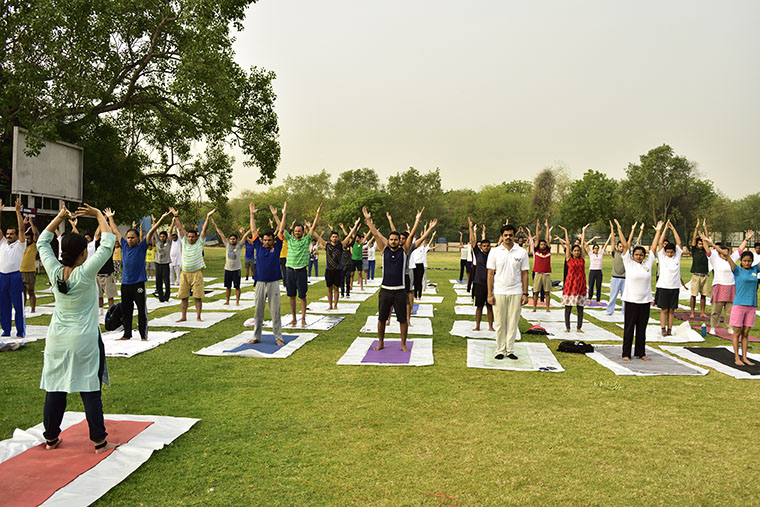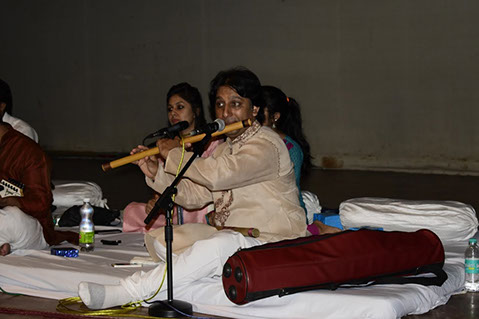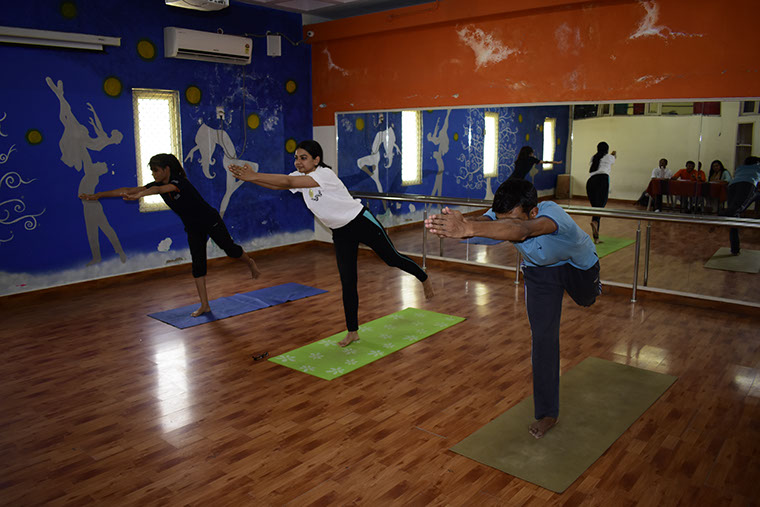FOCUS AREAS
About NRCVEE focus areas
Over the years, NRCVEE has developed significant expertise, experience and a clearly articulated vision for incorporating Value Education into its academic programs. It is strongly recommended that the fundamental focus of the academics at NRCVEE should be in the area of Inner Development (or Inner Sciences), which incorporates a direct first-person investigation of mind, body and consciousness using contemplative, meditative or Yogic approaches, which is expected to contribute to all the other areas identified. The aim is to to synthesize knowledge about mind and consciousness from multiple knowledge traditions including psychology, sociology, neuroscience, cognitive sciences, biology, medicine, different contemplative and yoga traditions, ayurveda and nutrition. In the beginning the following five key areas should form the focus of academics at NRCVEE
Holistic Health and Wellness
Wellbeing is essential for not only good academics but also for a good life. At present there is no focus at academic institutions in India to promote wellbeing. This area explores wellbeing (physical as well as mental) using first-person as well as third-person approaches. A variety of mind-body techniques such as mindfulness, Yoga etc. have been found to be very effective in not only restoring health but also providing resilience and nurturing many positive qualities. Wellbeing can be examined using objective, third-person investigation of mind-body techniques for physical and mental health. The mind-body techniques to be investigated include Mindfulness, Yoga, Tai-Chi, Qi-Gong, Ayurveda, Naturopathy, Nutrition and others. Investigation methodologies from diverse areas including Contemplative Neuroscience, Indian Psychology, Positive Psychology, Cognitive Sciences, Yogic Sciences, Ayurveda, Mindfulness, modern medicine are utilized. Modern measurement tools and technologies such as fMRI, EEG, MEG, PET as well as insights from first person observations are especially valuable for such investigations.
Associated Professors – Rahul Garg and Santosh Satya
Leadership for Sustainable Development
This area includes research and teaching on aspects of inner development that treats leadership as a means of achieving higher inner goals in life. Such an attitude also leads to the development for happiness, mutual harmony and peace in addition to prosperity.Further, this area includes the pursuits, particularly those involving global social and environmental issues, as a medium for the development of inner qualities such as equanimity, forbearance and peace. The investigations could focus on the impact of attitude towards the work on the state of the mind, exploring techniques for stress-free productivity, creativity and immersive life-long learning will be the focus of this area. The chosen activities should be of immediate societal importance, including those of the IIT-Delhi community, national as well as international issues, with opportunities for immersive learning. However, the focus will be on maintaining awareness of the interaction between the external events and circumstances and the internal state of the mind.
Associated Professors – Anuradha Balaram, Parag Singla, Nomesh Bolia, and R Balasubramaniam
Inner Development
This area includes teaching and research on first person mental phenomenon to gain insights on the nature of this world as well as the nature of the mind and consciousness and its relation to the body and the environment. The research employs the use of reproducible observations of mental phenomenon as well as the study of theoretical frameworks developed by people who have achieved great heights in meditative and contemplative practices. This area focuses on the core of what it entails to be a human, using the subjective, first-person introspection methods. The exploration of consciousness which is at the core of all the human endeavors, can be best done through direct first-person subjective methods. The exploration of fundamental questions such as “What leads to lasting happiness and mental peace? What does it mean to be a human? Who am I – body, mind or something else?”, through direct observation of the mental phenomenon, has the potential to unravel the mysteries of body, mind and consciousness and subtler truths about their interactions and lead to development of strength and character and values.For the above exploration, the following pre-requisites are extremely helpful — a healthy mind-body complex, stress-free, happy and peaceful mind, a mind with very sharp concentration, a mind free from biases, prejudices and distractions. The other recommended NRCVEE areas aim to cultivate the above qualities through various methods.
Associated Professors – M. R.Ravi, Rahul Garg, Jyoti Kumar, and James Gomes
Inner and Outer Harmony through Music and Arts
This area includes teaching and research on classical music, dance and art forms that promote introspection, concentration, various aspects of self-awareness and devotion. Also includes fusion of ancient with modern and development of new hybrid art forms with a sharp focus on inner development.Music and Arts should be explored as a medium for inner development and promotion of inner peace and outer harmony. It was highlighted that many cultures view music and arts as a medium of self-expression. Some Indian schools view classical music and classical art forms as an end in itself. At NRCVEE, music, dance-forms and arts are viewed as tools for inner development and cultivation of positive qualities such as self-awareness, emotional balance, devotion, universal human values, inner peace and outer harmony. The NRCVEE area of arts and music is especially relevant for engineering students, especially when they are used as a medium to connect to deeper aspects of the self and provide access to parts of the personality that the rational thinking mind cannot access. The education of arts and music targets different areas of the brain, which are untouched by conventional engineering education. These art forms are likely to nurture creativity, compassion, emotional resilience, and design thinking which conventional intellectual teaching may not be able to accomplish. Such attributes are indispensable in engineering education which students can apply in their jobs and lives.
Associated Professors – Purnima Singh, Kiran Seth and N M Anoop Krishnan
Value Education and Technology
This area includes tools and techniques for inculcating value education to students, enabling teachers to impart values in their students, developing based approaches for evaluating the effectiveness of the techniques studied, use of technology for efficient large scale dissemination of knowledge and newer models of education. This focus area examines the impact of technology on society and values. Tools and technologies can be explored for creating newer learning models, student-centric self-paced learning, flipped classrooms, and mindfulness in education. Further, the impact of use/overuse of technology on psychology, impact of technology on society, engineering pedagogy while incorporating elements of self-awareness, mindfulness and values form a core of investigations.
Associated Professors – M. R. Ravi, James Gomes, Ramesh Bijlani, Anuradha Balaram, Jyoti Kumar, Shri Adinarayanan Venkatchalam



